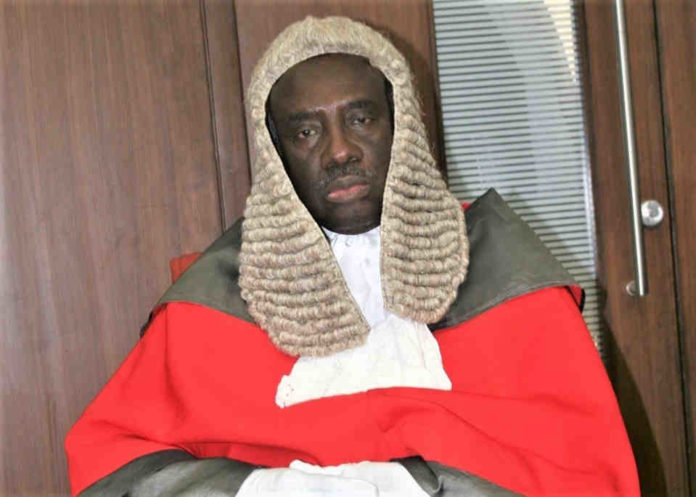By Yankuba Jallow
The judges of the Supreme Court have on Tuesday, 23rd July 2019 dismissed the case involving Freyale Ghanem who was challenging the powers of the ‘Janneh’ Commission to make orders for her to provide them with her asset declaration form.
“The Commission does not have the power to subpoena the plaintiff (Ghanem) to submit her asset declaration,” says the plaintiff’s lawyer.
The plaintiff, Ghanem also lost in her claim that the Commission acted beyond its mandate by issuing a restraint order dated 5th June 2018 to the plaintiff, his family, and servants among others. The court held the restraint order was done within the powers of the Commission as provided under section 202 of the Constitution. Also, the court held that the powers of the Commission to make interim orders are not limited under section 202 of the Constitution.
The Commission commonly referred to as the Janneh Commission was established by President Adama Barrow to probe into the dealings of former President of the Gambia, Yahya Jammeh and his close associates.
The Supreme Court held the powers of the Commission does not limit on section 202 of the Constitution. The judges in their unanimous holding said the Commission has the power to make orders as that of a High Court judge. In addition, the judges suppose that despite a commission of inquiry not being a court, it should exercise some powers of a court in executing its mandate. Therefore, the apex court judges held that providing an asset declaration form to a commission is consistent with the provision of section 200 of the Constitution as it forms part of the investigation mandate of the Commission.
“Asset declaration form is a legal tool of investigation,” Justice Hassan B. Jallow, the Chief Justice said.
On the claims of rights violations by the Commission, the plaintiff said her right to a fair hearing was being violated by the Commission and she was not told the rights of a witness including the right to be informed about the immunity of a witness, right to public hearing, and other rights. She also argued that she was not summoned as a close associate of the former President but as an (ordinary) witness. Also, the plaintiff argued that the powers of the Commission are limited under section 202. In addition, she said the interim orders by the Commission should be for a short period and not as issued by the Commission as she made reference to several decided cases and statutory laws.
“Allegation about rights violations does not fall under the original jurisdiction of the Supreme Court. The original jurisdiction of the Supreme Court can be found in section 127 of the Constitution,” the Chief Justice said as they struck out the claims.


















